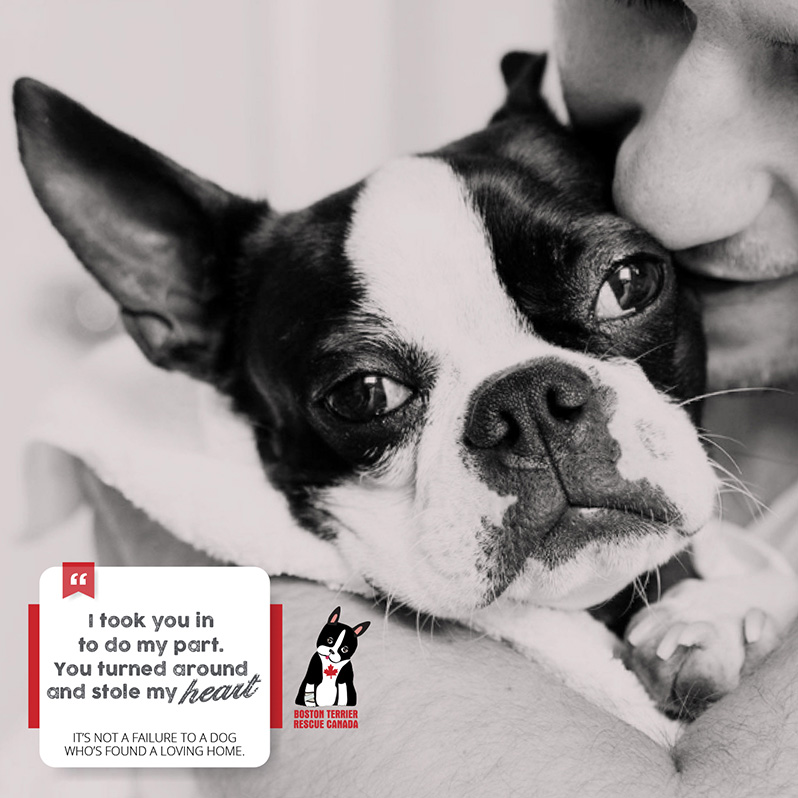You’ve heard the term – foster failure. Maybe you thought it meant someone who had to cut the foster process short by giving the dog back to rescue. Although failure is a negative term, in this case, it’s meant jokingly to describe a foster home that adopts its foster dog.
Occasionally the announcement that a dog has been adopted by their foster home does get some negative response. Although we understand some will be disappointed that a foster dog never made it to the adoptable page, we’d like to explain why this is anything but a failure.
Put yourself in the foster caregiver’s place. You step up to help a dog in need by fostering. Your foster dog is confused and scared. You comfort them. They have medical issues; you drive them to appointments and nurse them back to health. They have behavioural issues, and you work hard to provide the training they need to be the best companion they can be.
You intend only to foster. To ready this dog for a new forever home. But you fall in love, and the dog just fits. You want them to be part of your family forever.
You have put the time, patience and love into this dog. How can rescue say no? The dog is safe and happy, and although others would like the opportunity to adopt, this particular pup is already home.
People foster for many different reasons. During the pandemic, we received an influx of foster applications because people were working from home and had time they usually wouldn’t have. Some choose to foster so they can try out dog ownership. Others foster because they can enjoy the companionship of a dog without the financial burdens or the lifetime commitment. And still others – let’s call them “serial fosters” – do it because helping a dog in need get a second chance feeds their soul. They are available to help time and time again.
- Fostering is not a prerequisite to adoption, although foster parents must meet the same requirements that adopters do (application, references and home visit).
- Although we try our best to match our fosters with a dog that meets their lifestyle, experience and current schedule, some dogs will be better suited to a different environment in a forever home. What is best for the dog is always the most important consideration.
- No-pet adult-only homes are the most difficult to find, for both fostering and adoptions. Dogs who are aggressive to other animals or are reactive on leash can be difficult to place. The reason we are continually searching for these types of fosters is that when a foster realizes they can happily manage the dog’s behaviours and want to adopt, we consider this happy outcome a win!
- Still think the volunteers get first dibs at all the “good dogs”? Consider fostering yourself! Maybe it will be your first, your second or your tenth foster dog to whom you just can’t say goodbye. In the meantime, with the full support of the BTRC team, you’ll be providing the love, individual attention and care a deserving dog needs to be ready to find their happily-ever-after.
Click HERE to learn more about Foster Opportunities with BTRC.


